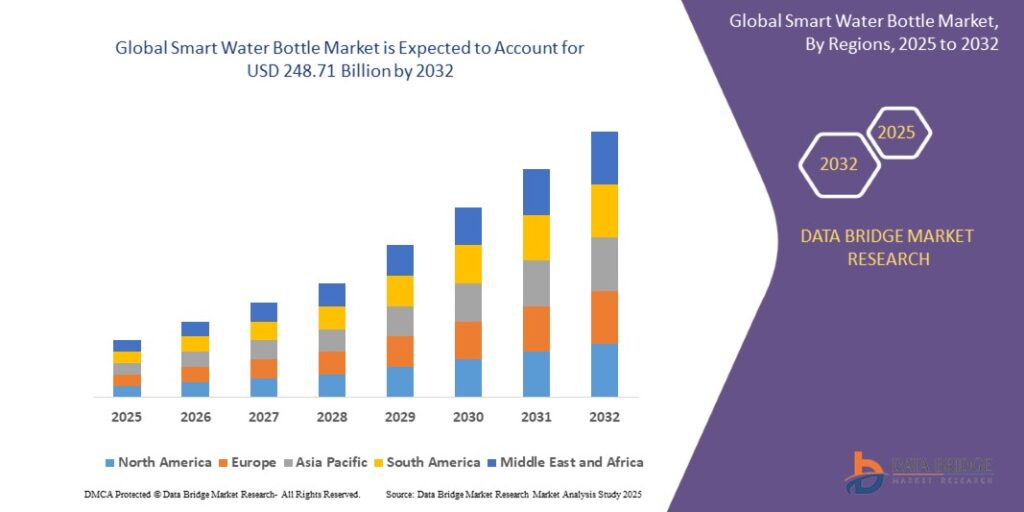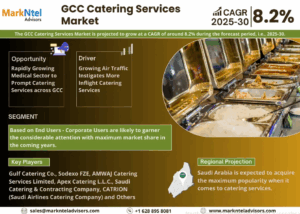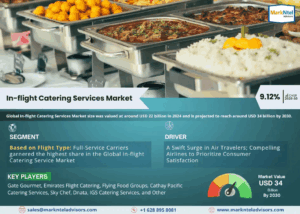Smart Water Bottle Market: Innovations, Trends, and Future Prospects
The smart water bottle market is rapidly gaining traction as health-conscious consumers increasingly embrace technology to manage hydration. These intelligent bottles do more than just hold water—they integrate with smartphones, track hydration levels, provide reminders to drink, and even analyze water quality. With the global focus on health, fitness, and sustainability, the smart water bottle market has become a notable segment within the broader health-tech and wearable ecosystem.
Market Overview
Smart water bottles are designed with embedded sensors and wireless connectivity (usually Bluetooth) that allow them to sync with mobile apps. They provide real-time data on water intake, remind users to hydrate at regular intervals, and in some advanced models, assess the water’s temperature and quality. These bottles are typically powered by rechargeable batteries and made from durable, BPA-free materials, catering to a tech-savvy and eco-conscious customer base.
Key Players
Several companies have emerged as leaders in the smart water bottle industry. Notable players include:
- HidrateSpark: Known for its sleek design and app connectivity.
- Thermos Connected Hydration Bottle: Offers integration with Fitbit and Apple Health.
- Gululu: Aimed at children, featuring gamification to encourage hydration.
- ICEWATER 3-in-1 Smart Water Bottle: Lights up and plays music to remind users to drink.
These brands are continuously innovating to offer enhanced features, better app integration, and improved user experience.
Market Drivers
- Health Awareness: Increasing awareness of the importance of hydration in maintaining health and wellness is a primary driver.
- Fitness Trends: Athletes and fitness enthusiasts benefit from hydration tracking as part of their overall health monitoring.
- Technological Advancements: Integration with wearables and smartphones has made smart bottles more functional and appealing.
- Sustainability: Many smart water bottles are reusable and promote reduced use of single-use plastics.
- Remote Work and Lifestyle Changes: The shift to working from home has encouraged consumers to adopt wellness tools that fit into home routines.
Challenges
While the smart water bottle market shows promise, it faces some challenges:
- High Cost: Smart bottles are more expensive than traditional bottles, which can deter price-sensitive consumers.
- Battery Life and Maintenance: Regular charging and app updates may inconvenience some users.
- Market Saturation: As more brands enter the market, distinguishing features become crucial.
- Data Privacy: As with all smart devices, data collected by these bottles needs to be securely handled.
Consumer Segments
The smart water bottle market caters to diverse consumer segments:
- Fitness Enthusiasts: Track hydration to optimize physical performance.
- Office Workers: Use reminders to maintain hydration during long work hours.
- Parents and Children: Child-friendly designs make hydration fun and engaging.
- Elderly Consumers: Reminders help maintain adequate hydration, crucial for aging individuals.
Regional Insights
The market exhibits different growth trends across regions:
- North America: A leading market due to high health awareness and disposable income.
- Europe: Growing interest in sustainable and health-conscious products fuels demand.
- Asia-Pacific: Rapid urbanization and tech adoption in countries like China and India support market expansion.
- Middle East and Africa: Still emerging, with opportunities for growth through health campaigns and technological investments.
Future Outlook
The smart water bottle market is expected to grow substantially in the next decade. Innovations like AI-driven hydration suggestions, solar-powered bottles, and deeper integration with health ecosystems (like Apple Health and Google Fit) are on the horizon. Brands that can offer multifunctional, stylish, and affordable smart bottles will likely dominate the market.
Conclusion
As consumers prioritize health and convenience, smart water bottles are poised to become an everyday essential. While challenges like cost and competition exist, continuous innovation and increasing health consciousness are expected to drive market growth. The future of hydration is smart, and this market is just beginning to tap into its full potential.






